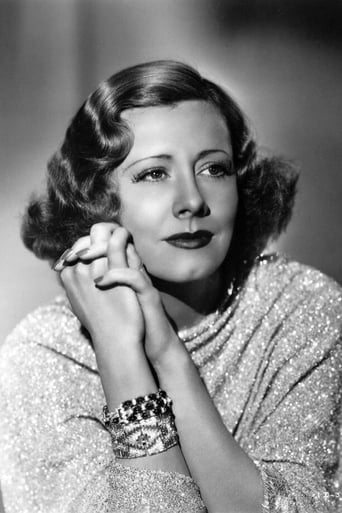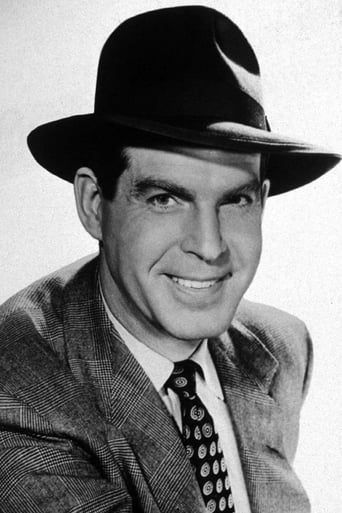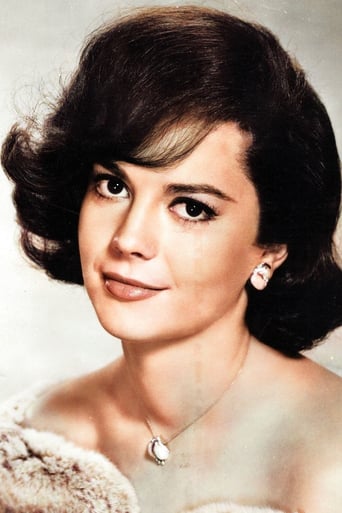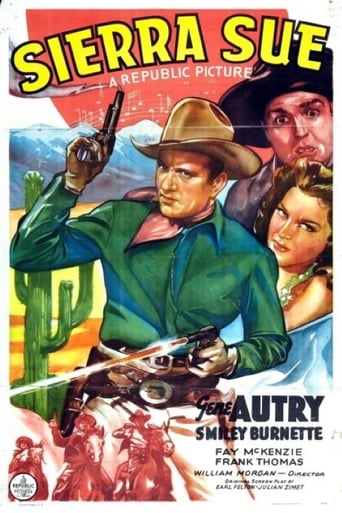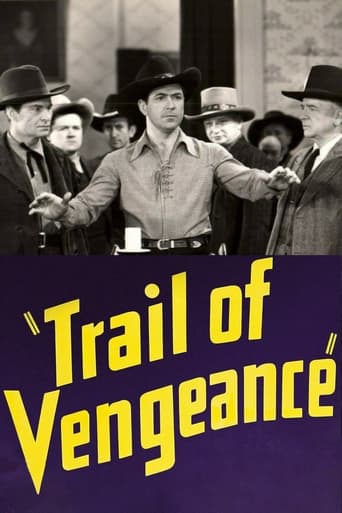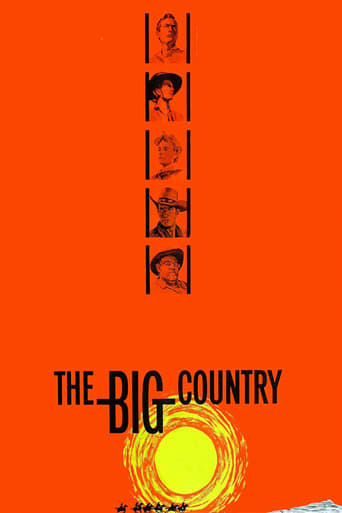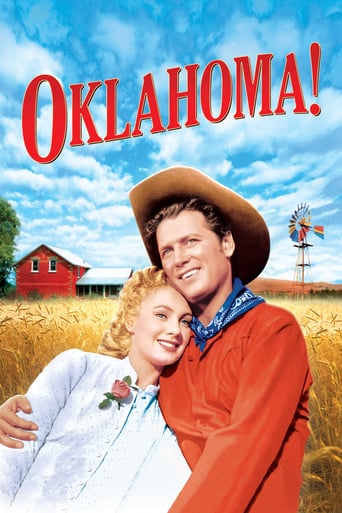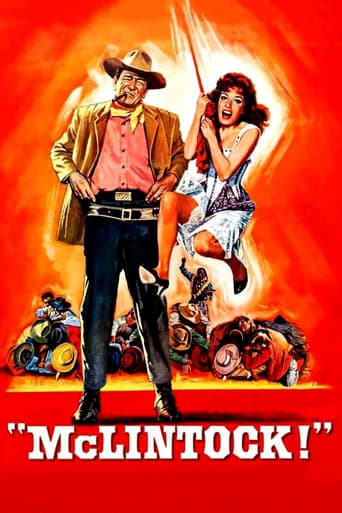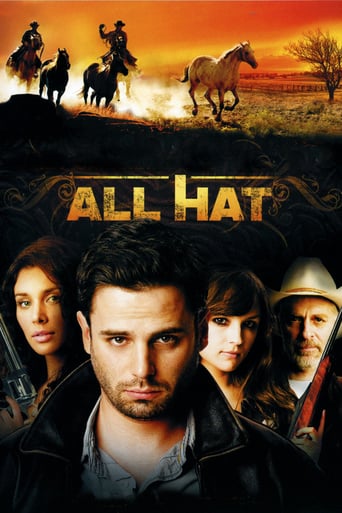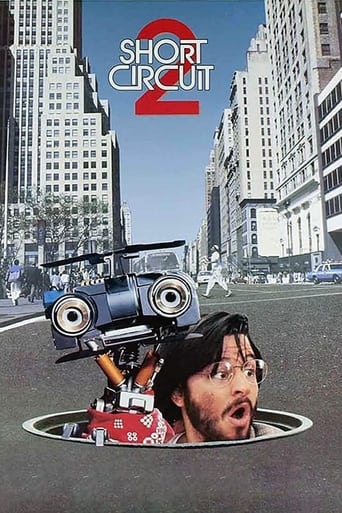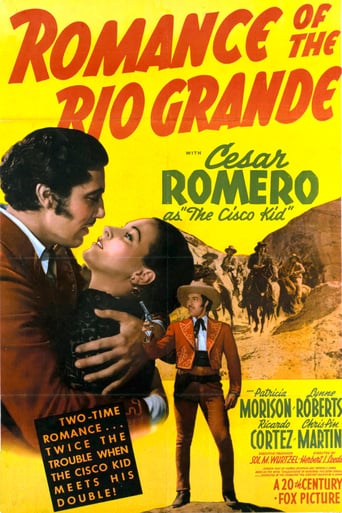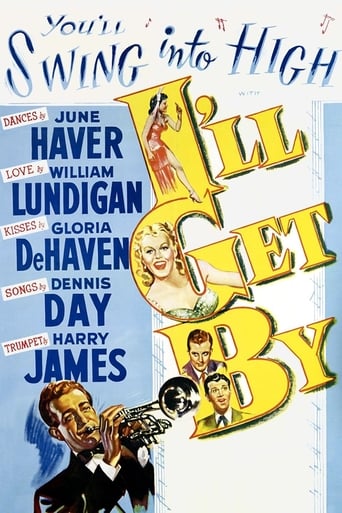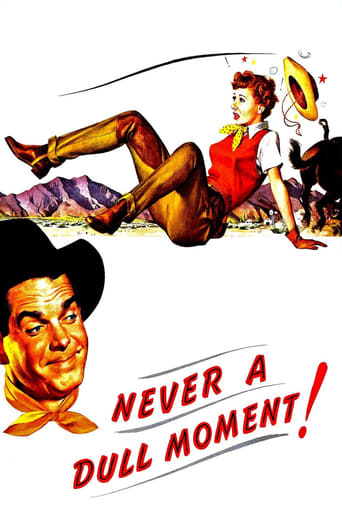
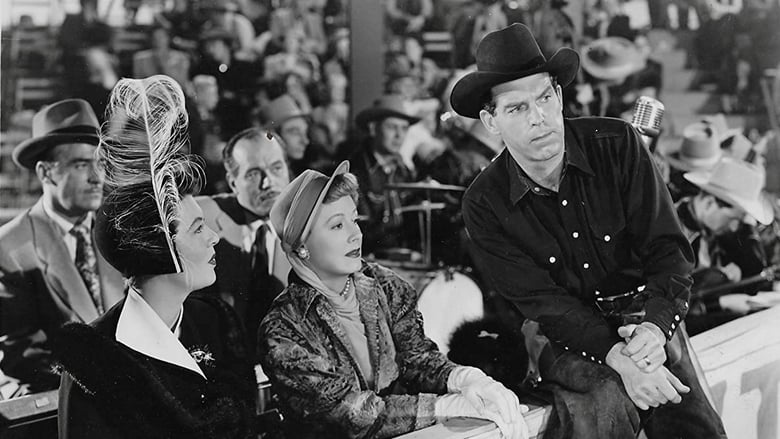
Never a Dull Moment (1950)
Kay Kingsley, a sophisticated and successful songwriter in New York City. falls in love with a widowed rancher, Chris Heyward, she meets at the Madison Square Garden Rodeo and they get married, and leave for his ranch in the west. Her friends warn her of an early disillusionment with life on a ranch, far away from the glitter and bright lights of Broadway. Kay makes one difficulty adjustment after another, as the ranch is presided over by Chris's kids, and an incident occurs with a neighbor that prompts Kay to return to her glamorous life in New York. But she soon finds her heart is with Chris and his children.
Watch Trailer
Cast


Similar titles
Reviews
I think this is a new genre that they're all sort of working their way through it and haven't got all the kinks worked out yet but it's a genre that works for me.
Strong and Moving!
I don't have all the words right now but this film is a work of art.
Excellent, Without a doubt!!
After watching some eps from the Death In Paradise box set I gave him as a Father's Day present,my dad started checking what films were on BBC iPlayer. Both of us being fans of his movies since seeing the Flubber flicks,we were pleased to find a rare Fred MacMurray that had just screened,which would hopefully not have a dull moment.The plot:Taking care of his daughters after the death of their mum/his wife, Chris Heyward raises cash by being a rodeo who travels across states. During a visit to New York,Heyward crosses paths with singer Kay Kingsley,and falls in love for the first time since he became a widow. Catching each other up in a whirlwind romance,the couple get married,and Kingsley leaves the songs,to join Heyward and his kids on the farm. Despite getting a warm welcome,Kingsley is unable to shake the feeling that she is suited to the limelight,rather than the farm life.View on the film:Getting knee-deep into all the farmyard chores,the very pretty Irene Dunne (who replaced Myrna Loy) gives a wonderful performance as Kingsley,whose singing glitters with gold that Dunne melts down into a Southern belle. Joined by a very young Natalie Wood (and future Rebel Without a Cause co-star Ann Doran) Fred MacMurray gives a great performance as Heyward,with MacMurray throwing Screwball Comedy haystacks in exchanges with Andy Devine's very funny Orvie.Keeping the Comedy and Melodrama lassos spinning, MacMurray gives a warm sincerity to Heyward's attempts to support Kingsley getting used to a different lifestyle. Bringing Frank Capra's cinematographer Joseph Walker down on the farm,director George Marshall impressively finds ultra-stylised barns for the daily grind of the family,via rustic tracking shots going over the muddy boots and family dog leaping for joy,to elegant overlapping shots listening in on local gossip,in a town that never has a dull moment.
Rodeo cowboy Chris (Fred MacMurray) has a whirlwind romance while visiting New York for a charity gig where he meets song writer Kay (Irene Dunne.)After rapidly getting married she drives cross country to his ramshackle Wyoming ranch where she becomes stepmother to his two daughters from his first marriage.Much of the movie sees Kay trying to adjust to her life at the ranch and raise her new stepdaughters. Problems begin with the neighbouring rancher who holds the water rights and whose cow, Kay accidentally shoots.Kay contemplates returning to Broadway to earn money in this fish out of water comedy. The cast make the film better than it should be, there are a few songs but it really is not that funny and rather predictable.
Our story begins at a charity rodeo in New YOrk City where one of the cowboys (Fred MacMurray) meets and quickly falls in love with a song writer (Irene Dunne). They are next seen after their marriage as they return to the ranch, where MacMurray has 2 young daughters from his previous marriage (which ended with the death of his wife). The ranch is a simple one that shows promise, but the overarching problem is water rights. The Wyoming folks enthusiastically welcome the new wife...except for neighboring rancher William Demarest, who holds the water rights. Dunne fits right in...except for with Demarest, whom she accidentally humiliates at a party. Much of the early part of the film traces her difficult (but good-spirited) adjustment to ranch life. Then, she accidentally kills Demarest's prize steer. She almost returns to New York where she could quickly earn money to help pay for more water rights, but she feels she is needed by the children and her husband, so declines the Broadway job. But, eventually things go from bad to worse, and she does return to New York, only for MacMurray to be dragged (or should I say carried) by Andy Devine to patch things up.This is a somewhat typical romantic comedy, but they resist the common temptation to resort to an imagined affair and jealousy as a reason to scotch the marriage and lead to kissing and making up. That's where I thought it was going, but thank goodness they followed a somewhat more realistic route. The one complaint I have is that a simple solution would be for her to work on her music at the ranch and not have to return to New York City. Ah well, that would be too obvious.Irene Dunne is wonderful here. Humorous and warm...perfect for the role. Fred MacMurray should never have taken the role on "My Three Sons"; it forever tainted his career, and people mostly forget what an important and beloved actor he was; he's very good here an believable as a cowboy/rancher. William Demarest is almost cartoonish here; they should have lightened him up just a tad. Andy Devine is seen mostly at the beginning and ending of the film, but he's good here, and important the story line. Natalie Wood again is a young girl, the elder daughter; she seemed like a natural.Nice gentle humor with a warm love story. A very nice film.
I love this movie.Irene Dunne is one of my favorite actresses and one of America's all-time greats. She is typically marvelous in this film. Fred MacMurray is likewise a real personal favorite. Together this wonderful, talented duo create two likable, sympathetic characters that you root for and that you want to find happiness together. Of course, it is never in doubt that they will end up together, but the complications along the way are made much more enjoyable and the slapstick is boosted beyond the ordinary because of the great personal charm and fantastic timing of these two leads. Irene Dunne, in particular, is one of the masters of comic timing.Natalie Wood and Gigi Perreau both portray their characters very credibly. Their enthusiasm over the wrist watches that Dunne gives them is also a neat reflection of the simpler values and expectations and the more modest means of that time. They have some cute dialog. In her youth Wood may have been cuter, but seldom as realistic as in this role. Perreau may be remembered best as the young Lark in Enchantment, with David Niven.The clever repartee between Dunne and William Demarest when she first arrives at the ranch is classic 30's and 40's script writing. The scene when MacMurray's cronies wake him up at 5 a.m. to go cougar hunting and then all make themselves at home in his bedroom on the double bed with Dunne is also a load of fun. (Please note that this was still in the double bed era of film-making, which is also something I kind of watch for.) The running gag about the dog is a lot of fun, too.One aspect of this movie seems to get overlooked. It provides a glimpse of life among working people in rural (and even small town) America that is not too distant in time, but is all but forgotten. Those people had to work a great deal harder at life than we do today. Cooking and washing were real chores. Life on a ranch was especially difficult. Besides the opportunities for slapstick humor, these chores provide us a glimpse of that hard life that people lived not so long ago. When MacMurray comes home late one night after butchering a steer, he is beat. His weariness is palpable. The scene is full of warmth between the characters, and it reflects real understanding of that hard life.This film offers both slapstick and great comic dialog. However, it also provides endearing characters in situations with just enough real-life type conflict to make this romantic comedy very charming and poignant. In the hands of a lesser cast, this movie might have been very ordinary, but because of Dunne and MacMurray it is a real delight. I regard this as one of the last of the screwball comedies - and a very good one. I have tried to find it on DVD.PS - Irene Dunne's last film appearance was in It Grows on Trees (1952), a wonderful and quirky modern day (1950's) fairy tale. It is very rare, and utterly delightful. But if you don't like this film, you probably should not bother with it.


